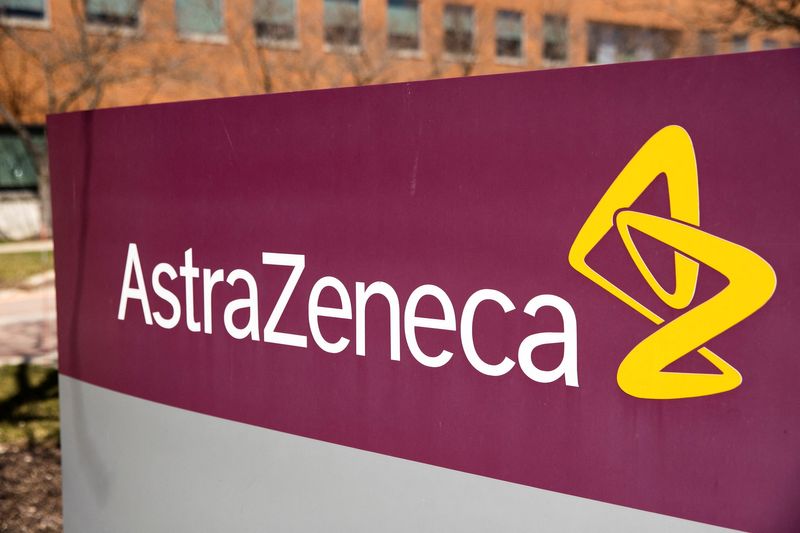By Natalie Grover
LONDON (Reuters) -An interim analysis of AstraZeneca (NASDAQ:AZN) and partner Ionis Pharmaceuticals (NASDAQ:IONS)' eplontersen showed the experimental drug met the main goals in a late-stage trial in patients with a rare, fatal disease, the Anglo-Swedish drugmaker said on Tuesday.
Based on the results, the companies plan to file an application to market the therapy in the United States later this year in patients with hereditary transthyretin-mediated amyloid polyneuropathy (ATTRv-PN).
The disease - which affects an estimated 40,000 patients globally - leads to peripheral nerve damage with motor disability within five years of diagnosis and, without treatment, is generally fatal within a decade, according to AstraZeneca.
The drug is designed to reduce the production of transthyretin, or TTR protein. Curbing TTR limits the accumulation of amyloid deposits in peripheral nerves and various organs that causes them to function abnormally.
In a separate late-stage study, eplontersen also being tested for use in amyloid transthyretin cardiomyopathy (ATTR-CM), which is a progressive condition that leads to progressive heart failure and death within four years from diagnosis.
There are an estimated 300,000 to 500,000 patients with the condition worldwide, AstraZeneca said.
The Cambridge, UK-based company agreed to pay California-based Ionis $200 million up front, with up to $485 million in conditional payments following regulatory approvals as well as up to $2.9 billion in sales-related milestone payments in a deal to jointly develop and commercialise the drug last year.
A handful of companies are focused on the lucrative field of ATTR. Alnylam Pharmaceuticals secured the first U.S. approval for an ATTR therapy when it brought Onpattro to the market in 2018.

Pfizer (NYSE:PFE) also has a pair of ATTR cardiomyopathy therapies - branded Vyndaqel and Vyndamax - that raked in more than $2 billion in total sales last year, including $909 million generated in the United States.
In 2021, Novo Nordisk (NYSE:NVO) also agreed to acquire Prothena Corp's experimental ATTR cardiomyopathy drug in a deal that could be worth up to $1.23 billion.